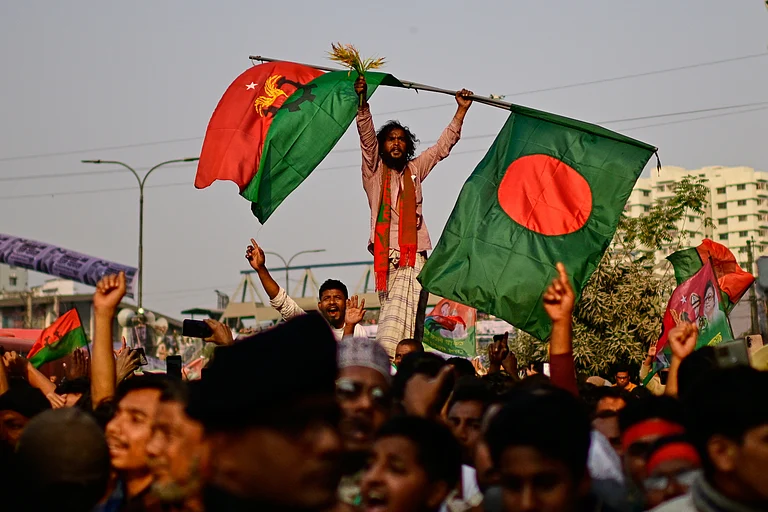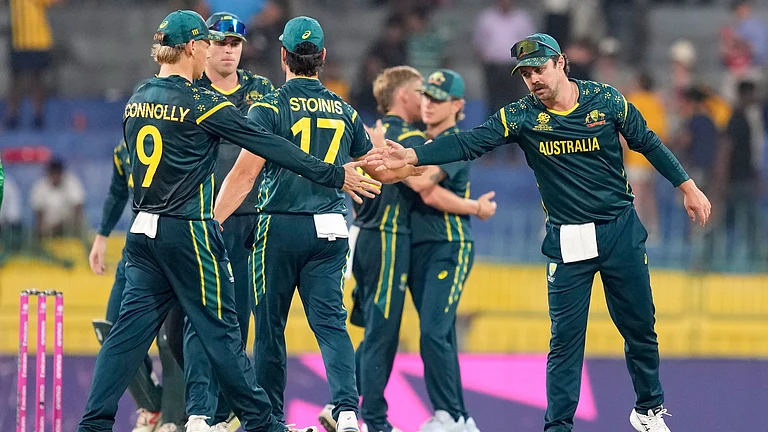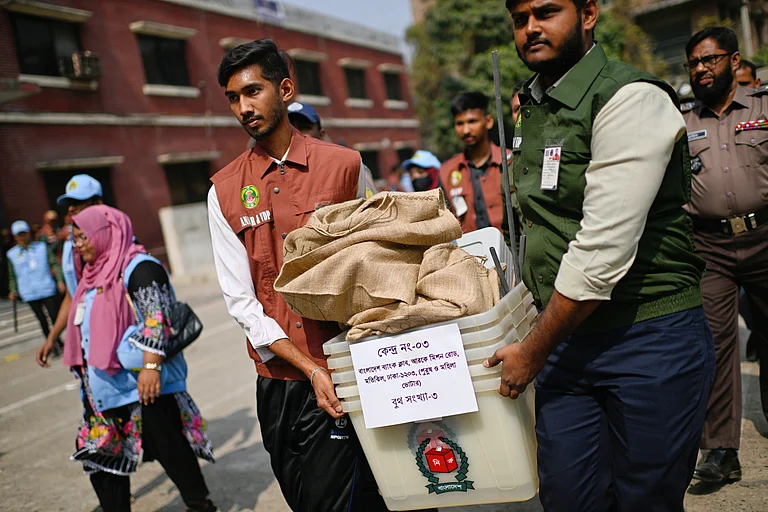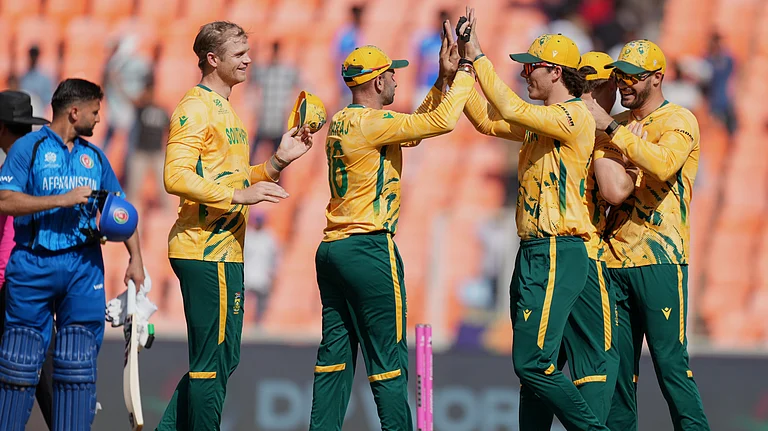The Supreme Court on Tuesaday said it will begin hearing petitions challenging the changes to Article 370 that bestowed special status on erstwhile state of Jammu and Kashmir from August 2, and will then proceed on a day-to-day basis.
On Tuesday, the Supreme Court was scheduled to take up the series of petitions challenging the scrapping of Article 370, which gave special status to Jammu and Kashmir, and the state's bifurcation into two Union territories after a gap of over three years.
The apex court’s five-Judge Constitution Bench will take care of the introductions, issuing procedural directions about filing of documents and written submissions.
The court will also name a date for the hearing to begin.
The SC bench will comprise of Chief Justice of India DY Chandrachud and Justices Sanjay Kishan Kaul, Sanjiv Khanna, BR Gavai and Surya Kant.
What happened on 5 August 2019?
On 5 August 2019, Centre government led by BJP scrapped Article 370 and Article 35 A that gave special statuts to Jammu and Kashmir in the country. Subsequently, the state was downgraded and divided into two Union Territories—J&K and Ladakh.
Article 370 was scrapped through a series of legislative and executive decisions after which Parliament passed the Jammu and Kashmir Reorganisation Act to bifurcate the state.
What is Supreme Court expected to examine in the matter?
The court is expected to examine whether Parliament could have scrapped Article 370 without the consent of the people of Jammu and Kashmir and whether its bifurcation into two Union territories was constitutional.
On Monday, the Centre filed an additional affidavit where it said the move to scrap Article 370 in August 2019 has led to an "unprecedented era of peace" in Jammu and Kashmir and Ladakh.
"Jammu and Kashmir was facing the brunt of terrorism for the last three decades. To curb it, the only way was to remove Article 370," the Union Home Ministry said in the affidavit.
"Today, all necessary institutions including schools, colleges, industries are running normally in the Valley. Industrial development is happening and people who lived in fear are living peacefully," the affidavit read.
When was the case heard last time?
The case was last heard by a different five-judge bench in March 2020. In that hearing, the bench had refused to refer the matter to a larger, seven-judge bench.
Under what circumstances was the J&K’s special status scrapped?
The process was undertaken after the imposition of President's Rule, when there was no state assembly.The petitions in SC against the decision have argued that the scrapping Article 370 during President's Rule through a Presidential proclamation is a violation of the democratic rights of the people of Jammu and Kashmir.
Jammu and Kashmir came under President's Rule after the BJP broke alliance with Mehbooba Mufti's PDP.
Is there elected government in J&K after 5 August 2019?
No there is no elected government in the erstwhile state of Jammu and Kashmir right now. There have been no assembly elections in the region since 2014.
How are Jammu and Kashmir political leaders reacting over Centre's affidavit on Article 370 in SC?
Former chief ministers of Jammu and Kashmir Mehbooba Mufti and Omar Abdullah have criticised the Centre's affidavit in the Supreme Court on the abrogation of Article 370.
Both have said that it “lacked logic” and had no constitutional backing.
"The Centre's defence lacks logic … (is) illegal & unconstitutional abrogation of Article 370," PDP President Mehbooba Mufti said.
"Brute majority was used to subvert the Indian constitution that extended guarantees to the people of J&K & GOI also violated earlier rulings of Hon'ble SC which held that only J&K's constituent assembly could recommend the removal of Article 370 to the President of India," she said.
The once-BJP ally also said that "drum beating about an enforced silence" in the region cannot be used to "justify constitutional harakiri."
National Conference leader Omar Abdullah also took to Twitter saying the arguments put forth by the government were political and had little in the way of legality.
"These are definitely political arguments the BJP/Union Govt can make to sell their decision to the voter but they are not legal arguments.
"The entire case in the SC is about the illegality & unconstitutionality of what was done on 5th Aug 2019, not whether the Govt has a strong enough political case," Abdullah said.
PDP leader Naeem Akhtar and CPI-Marxist leader M Y Tarigami too slammed the government's case in Supreme Court calling its version far from the truth, mentioned PTI report.
"I don't think there is any constitutional provision on terrorism. Centre has no constitutional or legal defence available for its unconstitutional actions in Jammu and Kashmir. So they have taken this terrorism ground," Akhtar has said.
He said there were many states where the Armed Forces Special Powers Act, or AFSPA, was in force but only Jammu and Kashmir was singled out as particularly vulnerable.
"They have not degraded those states to the level of Union Territories. They have not punished the people of that state. They have only singled out Jammu and Kashmir," Akhtar said.
The PDP leader said the party had full faith in the judiciary.
"We have full faith in the judiciary and this august forum has already twice upheld the Article 370 as a permanent feature of Indian Constitution in the absence of a constituent assembly in J&K which has ended its role in 1954," he added.
Tarigami said even a cursory look at the Centre's Supreme Court affidavit will reveal it is contrary to the facts.
"Truth is being obfuscated. Don't we know how peaceful Jammu and Kashmir was before 1990?" Tarigami said.
"Why did violence erupt? The reason was that special status given to JK was eroded and the inimical elements got a chance to disrupt.
"What happened in 2019? They jailed all the leadership and revoked the special provisions of the constitution with a stroke of a pen," he said.
"We don't want enforced peace. We want a democracy where people's rights are protected. That's why we have approached the SC for restoration of the rights," Tarigami said.
Only restoration of special provisions of the constitution can bring peace and prosperity to the people of Jammu and Kashmir, he stressed.
"Was there no tourism before 2019? Was there no peace before? Why has there been no election since 2014? How did BJP come to become part of the government in Jammu and Kashmir for the first time in 2014? Because there was peace," the leftist leader added.


























